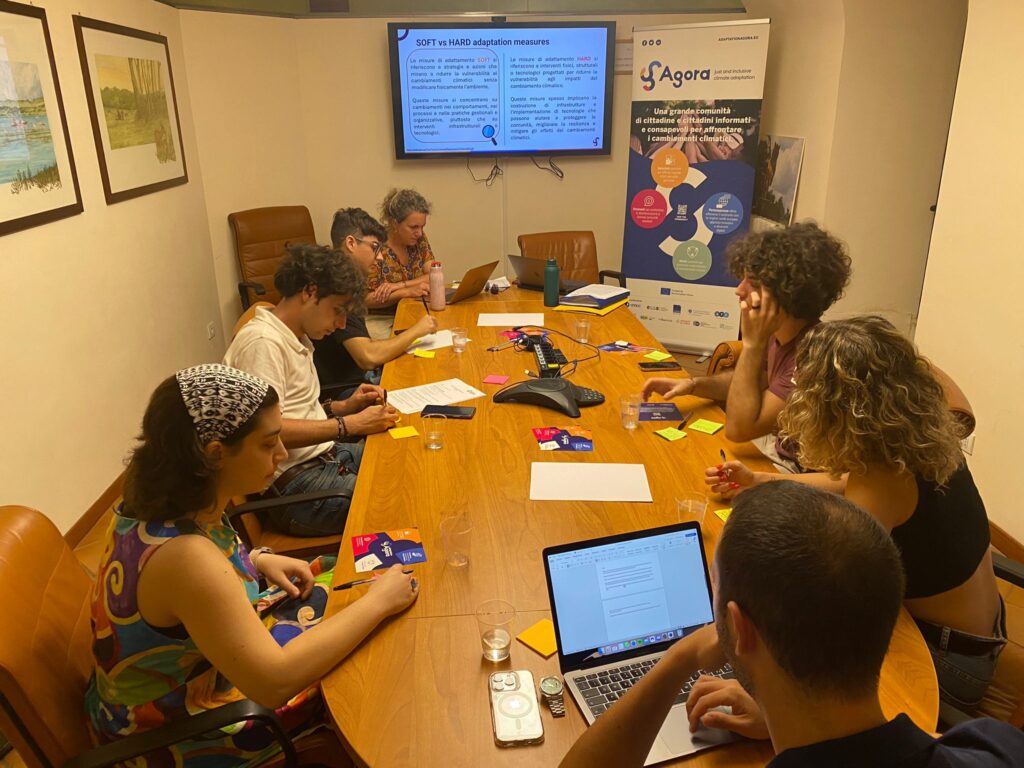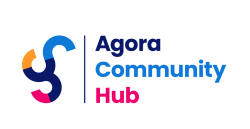Third Focus Group in Italian Pilot – Younger Perspectives

This case study is part of the Italian pilot case study within the AGORA project. AGORA promotes societal transformation to empower local communities to address the climate crisis and aims to achieve this through a multidisciplinary, integrated approach and four pilot studies in Europe.
AGORA is a HORIZON Europe project started in January 2023. It supports the EU Mission on Adaptation to Climate Change.
Summary
The third installment of focus groups within the Italian pilot, AGORA gathered 7 university students and young working professionals. The focus group aimed to understand climate change impacts on citizens in urban environments.
Introduction
The third focus group in the series of focus groups put together by the AGORA project was held on July 17th, 2024, in Rome, Italy. This focus group included 7 university students and young professionals as the target audience. As with the other focus groups, this event began with introductions from all of the participants. During the introduction, the participants shared their personal and academic experiences. After the introductions, a video from the IPCC on climate change was shown to give the participants some background knowledge before beginning the activities.
Methodology
This event was divided into 3 activities. The first focused on sharing personal experiences. Each of the participants took turns expressing their thoughts, personal experiences, and concerns about climate change. Many of the participants showed precariousness of the future, a concern of an increase in infectious diseases, worries over the management of food sources and global inequality and expressed a need for greater awareness and action. One participant shared the interesting thought that young people have never known a world without climate change, that they have an “innate” perception of it since they have heard of climate change and experienced its effects since they were young.
The second activity focused on co-creating soft adaptation measures with the “Nominal Group Technique”. From this activity, participants identified several adaptation measures, including interactive platforms for citizen participation, decentralization of tourism, and mandatory environmental campaigns in schools. There was also an emphasis on establishing generational awareness campaigns to educate and raise awareness to older age groups, who are sometimes skeptical about climate change.
The final activity involved co-evaluating engagement methodologies, combining the “Think-Pair-Share” method and the “How” method. Participants were divided into three groups and each group proposed engagement methodologies. Some engagement methods the groups proposed included training and skill development workshops, learning circles, mentorship programs, and practical climate education. The focus group created a proposal for a “Climate University Network” project, which would unite the academic expertise of various universities across Europe to provide concrete solutions to environmental problems.
Conclusion
The participants of this focus group showed satisfaction with the event and expressed interest in participating in future AGORA events. The AGORA team appreciated the group’s diverse composition, which included various disciplines and sectors, and two working professionals.


Comments
There is no content